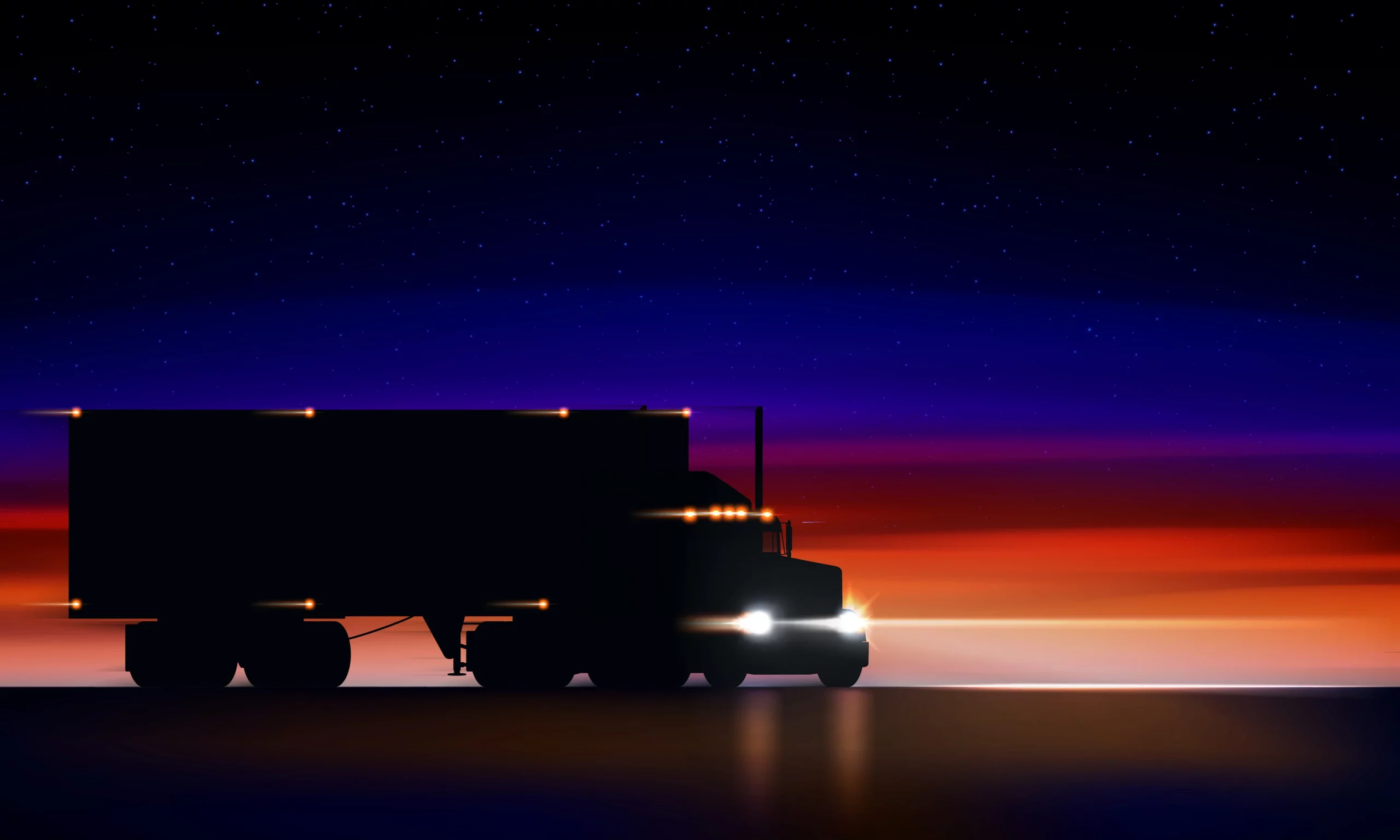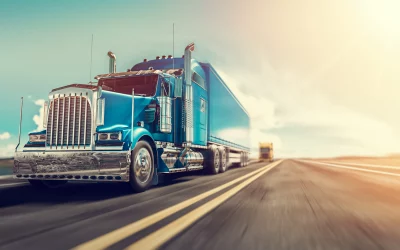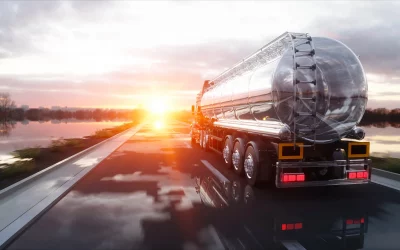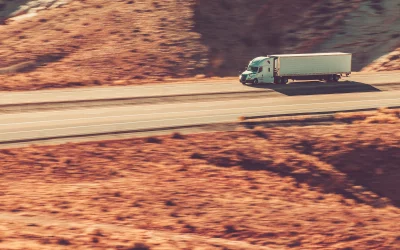Experienced Denver Truck Accident Attorneys
Trucking Company Liability in a Truck Accident Claim is a legal term that refers to the responsibility of a trucking company in the event of an accident.
Truck collisions may result in significant property damage and catastrophic injuries for all parties involved.
You may be able to take legal action against the driver’s employer trucking firm in addition to filing an insurance claim or a lawsuit against the irresponsible truck driver. However, in other situations, the trucking firm may claim that it is not liable for the losses caused since the truck driver was an independent contractor rather than an employee.
There is a clear distinction between workers and independent contractors under the law.
Unlike employees, independent contractors work when they want, establish their hours, and in some situations, even determine their compensation rates.
On the other hand, Trucking businesses may be held liable for the conduct (or inactions) of independent contractor truck drivers.
Trucking businesses, for example, maybe held accountable under federal law if they lease a car or a placard to a truck driver.
Accident cases involving trucks may be exceedingly diverse and complicated.
As a result, it is not advisable to leave the outcome of your case to chance. Warrior Trucking Accident Attorneys in Denver may be able to take legal action on your side against a trucking business and obtain the monetary compensation that you need and deserve.
Vicarious Liability on the Trucking Company’s Part
In a motor car collision, you must first exhaust your $10,000 in Medical payments coverage(MedPay) coverage before filing a claim or lawsuit against the liable party under Colorado’s no-fault legislation.
Alternatively, if you received lasting harm due to the accident, you may sue the at-fault party.
You may be able to make an insurance claim or a lawsuit against the trucking business in addition to the negligent truck driver if the negligent truck driver is an employee of the trucking firm. Trucking businesses might be held liable for the injuries and losses they suffered in the accident.
The truck driver must be driving the truck while on the job and within the scope of employment with the trucking business for the trucking firm to be vicariously responsible for the truck driver’s carelessness.
On the other hand, an employer trucking firm cannot be held accountable for a truck driver’s negligence if the driver was operating outside the scope of his work at the time of the accident. This is true even if the driver was driving a truck owned by the trucking firm at the accident.
It is significantly less probable that the trucking firm will participate in the blame if the driver was on a personal errand at the time of the accident.
Courts examine the following factors to decide whether a truck driver was acting within the extent of his or her profession at the time of an accident:
Whether the accident happened within the driver’s regularly planned working hours
Whether the driver’s actions benefited the trucking firm
How long it took the driver to participate in any personal activity while driving
Other Liability Bases for Trucking Companies
In addition to vicarious responsibility, there are additional situations in which a trucking firm might be held liable for the acts of a negligent driver. Trucking firms may be held accountable for the following:
Failing to provide the essential skills and training to the truck driver
Failing to ensure that the truck driver meets all CDL renewal criteria
Requiring the driver to drive the car for lengthy periods with no breaks (usually when there is a financial incentive for the trucking company and the driver to drive long hours)
Failing to have adequate maintenance, repairs, or inspections conducted on the tractor or trailer that the driver runs
Allowing – or even encouraging – the driver to break trucking standards or Federal Motor Carrier Regulations
When a Trucking Company Is Not Responsible For A Truck Accident
It’s hardly a regular occurrence, but if evidence exists that a truck driver intentionally caused an accident, the trucking business may no longer be accountable for its conduct. There is still a potential that a trucking firm might be held accountable for the conduct of a truck driver if they failed to properly screen them or demonstrated some other type of carelessness in employing or maintaining the driver as an employee, such as if the driver has a history of deliberate accidents.
In general, the line between driver and trucking business responsibility is drawn if the driver unintentionally causes injury since the case would become one of the intentional torts, similar to an assault and battery case.
The trucker’s conduct would be perceived as having nothing to do with the firm and everything to do with their reasons.
The Trucking Company’s Insurer Is No ton Your Side.
The trucking company’s insurer is not on your side when it comes to filing an insurance claim for damages.
In reality, the insurance company will make every effort to ensure that you get the least amount of money feasible in your situation.
When it comes to pursuing the trucking business as part of an insurance claim, there are a few steps to take to maximize the value of your case.
Ensure you have all of the essential documents, such as accident reports, witness testimonies, and police reports. Because insurance companies may dispute responsibility (or blame) in transportation accidents, this proof is required.
You should also save and protect all your connected medical records and expenses. These data are required to show that you were injured and damaged in the accident and that the accident was the direct cause of all of your injuries and damages.
Finally, if you missed time from work due to your injury, you should save all of your employer’s lost salary documents. This paperwork will help you arrive at past and future lost pay damage amounts.
How to Sue a Colorado Trucking Company: A Step-by-Step Guide
In 2019, there were more than 39,000 commercial car collisions in Colorado.
More than 15,000 people were injured, with at least 613 dying.
On the other hand, Truck wrecks aren’t about statistics—each of those numbers symbolizes a narrative, a struggle, and a tragedy.
That is why the personal injury attorneys at Crosley Law concentrate their practice on commercial car collisions and other significant motor car collisions.
We fight for victims and their families, ensuring that they get the accountability and compensation that they are entitled to.
This article will talk about truck accidents, the legal procedure, and what to anticipate at each step.
Step 1: Speak with a Truck Accident Attorney.
Compared to the average car accident, truck collision claims are very complicated. You must be familiar with Colorado laws, federal transportation rules, medication, and the sophisticated technology that watches and monitors today’s cars. It’s simple to make errors unless you’re a highly experienced truck accident lawyer.
Why Should You Never Ignore Trucking Violations Following a Crash?
Most trucking businesses must follow rigorous regulations when it comes to time on the road, maintenance, and record-keeping by the Federal Motor Carrier Safety Administration (FMCSA). For example, under the FMCSA’s hours of service requirements, truck drivers must take breaks to decrease driver weariness and make our roadways safer.
When infractions happen, they may have disastrous consequences.
As a result, Colorado regards regulatory infractions as proof of carelessness in and of itself, which may help you simplify your injury case and improve your potential to get a reasonable settlement.
After a severe truck accident, most insurance companies will send teams of investigators and attorneys to the scene. The major purpose of these groups is to influence the authority’s inquiry and safeguard the insurance company’s bottom line. Evidence occasionally vanishes during their attempts, and innocent victims’ fingers are often levelled at.
To fight back, you must be proactive and engage with a truck accident lawyer as soon as possible. Our staff understands how to preserve evidence and has even collaborated with law enforcement to fix inaccuracies in police reports. We also have a no-fee policy, which means you’ll never have to pay attorney fees or case expenses unless we successfully recover compensation for you.
Our staff understands how to preserve evidence and has even collaborated with law enforcement to fix inaccuracies in police reports.
Also, since we have a no-fee policy, you will never have to pay attorney fees or case expenses until we can win compensation for you.
Step 2: Determine Who is to Blame for Your Misfortune
Before launching a truck accident case, you must first determine who is at fault.
This might include:
Trucking companies that violated safety rules and regulations or acted negligently
Businesses that improperly loaded the car
Manufacturers and distributors of defective or dangerous truck parts
Bars and restaurants that knowingly overserved a drunk driver
Other parties who contributed to the crash
This implies that your claim may be complicated by several insurance companies, legal concerns, and legal actions.
If you fail to name all of the people involved in your damage claim, you and your family may get less compensation. As a result, it’s critical that you identify any insurance policies that cover your injury.
Step 3: Look into your claim.
Begin “Pre-Litigation”wx
While your truck wreck lawyer’s research will begin on the first day, it will really ramp up during the pre-litigation phase of your claim. During this period, your lawyer will gather information such as medical records, crash reports, and expert views (from physicians, accident reconstruction specialists, and trucking safety experts) to assist outline your legal claims.
They will compute your losses and determine the settlement worth of your claim at the same time.
Your losses may include the following, depending on your circumstances:
Medical costs, both current and future
Medical gadgets and equipment needed to live a productive life
Pain and suffering
Long-term care costs
Loss of pleasure, if you can no longer do the activities you like
Loss of consortium (the loss of marital affection or companionship)
Funeral and burial expenses
Then, using all of the facts they’ve gathered, your lawyer will notify the insurance company of your claim and seek recompense for your losses.
You may sometimes reach an agreement without filing a lawsuit.
If that isn’t doable (or your two-year filing deadline is nearing), you’ll have to initiate the formal litigation procedure.
Step 4: File a Personal Injury Lawsuit and Prove Your Case
The act of filing a lawsuit is the start of the legal process, in which you and the at-fault parties attempt to settle your disagreement in court.
To begin, you’ll submit a complaint, which is a written document in which you detail your allegations and request compensation.
After then, you must serve the at-fault parties, informing them that they have been identified as defendants in your action.
The other parties then have a set amount of time to reply to your allegations. Once the court has received your complaint and the defendants’ responses, they will issue a scheduling order, which will establish further deadlines in your case.
Following that, you and the other parties will exchange information (a process known as discovery), begin trial preparation, and continue your settlement discussions.
Accidents in the trucking industry and wrongful death lawsuits
If a family member died in a commercial truck accident, you might be able to file wrongful death claims against the trucking business and others.
You’ll need to take some extra procedures when filing your lawsuit, in addition to being emotionally challenging instances.
As part of a fatal truck wreck claim, you may be required to establish an estate with the probate court.
We strongly advise you to speak with a highly skilled personal injury lawyer since these cases are very complicated.
Step 5: Complete the Dispute Resolution Process
The majority of personal injury claims are settled outside of court. Crosley Law’s truck collision lawyers strive to get fair settlements for their clients, and we’ve discovered that mediation (and other kinds of conflict resolution) are effective methods.
During mediation, the parties to a case get down and attempt to settle their differences with the assistance of a mediator, a qualified professional who assists them in identifying common ground and guiding their conversations.
While we’ve been successful in reaching a number of settlements via mediation, this isn’t always the case.
The court will establish a trial date in these matters.
Step 6: Go to the Truck Accident Claiming Court and try your luck.
A jury will analyze your case, assess the evidence, and reach a decision during a trial.
This is a fairly formal procedure in which both your injury lawyer and the insurance company’s defense team will present their cases, interrogate witnesses, and attempt to find flaws in the other side’s presentation.
It might take days to finish your case, particularly if there are several parties involved or if the problems are significant.
When you engage with a skilled truck accident attorney, they will walk you through your case and explain all you need to know.
Check to see whether you’re well-prepared. Ensure that your lawyer responds to all of your inquiries and that you are aware of what to anticipate.
While a trial may seem to be the last step in trucking accident litigation, this is not necessarily the case. Both parties will have the option of appealing the judgment, and insurance companies often claim this privilege.
Your lawyer can assist you in addressing the appeals arguments (and might continue to work on a settlement on your behalf).
For a free first case evaluation and legal consultation, contact a Denver truck accident lawyer.
Serious truck accident injuries can be debilitating and necessitate extensive medical treatment, not to mention a lengthy recovery period.
Truck drivers and trucking corporations have large insurance companies on their side, as well as expert lawyers. As a result, you need to have an experienced truck accident lawyer on your side throughout the duration of your case.
Warrior Trucking Accident Attorneys in Denver can review your version of the facts with you and may be able to dispute any responsibility issues brought up by the insurance company.
Our attorneys will fight for your right to get a fair settlement for your injuries. Please call us now at 719-300-1100 or contact us online to arrange a free consultation and case review with a Denver truck accident lawyer.
Warrior Car Accident Lawyers
1902 W. Colorado Ave., Suite 100
Colorado Springs, CO 80904







